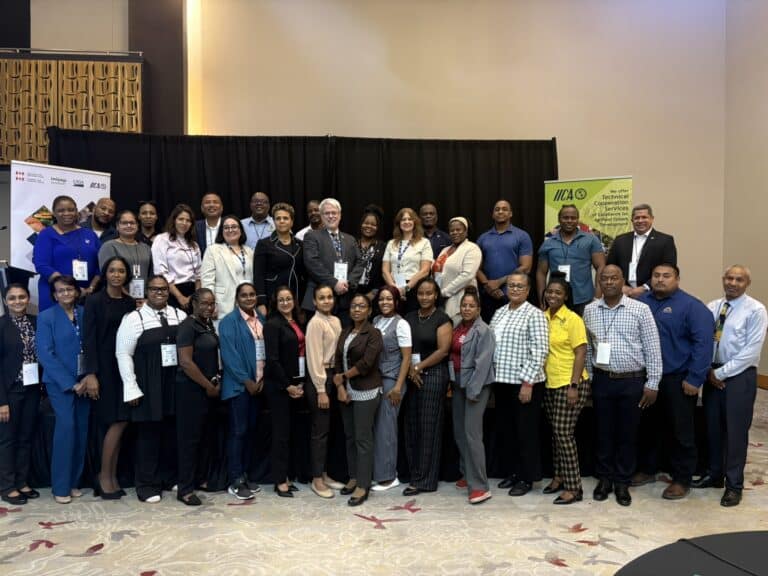With funds from IFAD, IICA will be implementing a program designed to create work and guarantee food security in the rural areas hit hardest by the earthquake.

San Jose, Costa Rica. July 18, 2010 (IICA). The International Fund for Agricultural Development (IFAD) has donated US$2.5 million
to enable the Inter-American Institute for Cooperation on Agriculture (IICA) to carry out a program in Haiti aimed at repairing irrigation systems and strengthening grassroots organizations in the areas most affected by the earthquake that struck the country on January 12.
Following the earthquake, some 600,000 people migrated from the Haitian capital, Port au Prince, to the rural areas, where local resources and the agricultural infrastructure were placed under great strain.
The new program created for Haiti since the earthquake will target food security and the creation of work in the rural areas affected. Members of the local population will help repair 13 irrigation systems, rebuild 12 kilometers of rural roads, construct 300 community and family vegetable gardens and equip nearly 9000 homes with seeds and harvesting tools.
Alfredo Mena, IICA’s Representative in Haiti, said that agreements for the execution of the program were signed with the Haitian Center for the Promotion of Agriculture and Protection of the Environment (CEHPAPE) and the Haitian Foundation for Latin American and Caribbean Development (FONHDILAC).
The program, to be implemented by organized groups of rural women and grassroots groups, will seek to strengthen the social capital by means of more than 250 training courses on marketing, agricultural production, gender equity and the creation of organizations.
“Food security is a big problem. We have seen many people return to the capital in search of work, leaving their children behind. We need a long-term solution to improve food security and the only way to accomplish that is by giving farmers work, tools and training,” Josefina Stubbs, Director of IFAD’s Latin American and Caribbean Division, was reported as saying in a press release.
It is estimated that the project will generate around 200,000 working days in the target areas. Furthermore, a green component has been incorporated to promote soil conservation and reforestation. The objective is not only to offer short-term aid to the rural population affected, but also to provide sustainable solutions that will allow Haiti to advance in the years ahead.
This project is part of IICA’s different activities in Haiti to support the efforts of the Ministry of Agriculture to reconstruct the agricultural sector.
For more information, contact
IICA Representative in Haiti
IFAD Regional Communications Specialist











